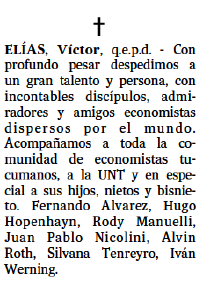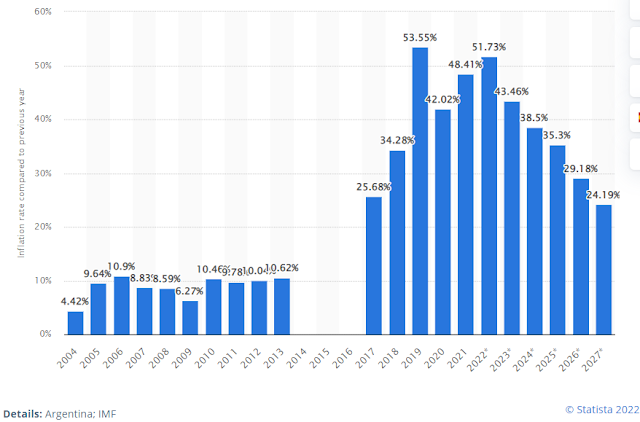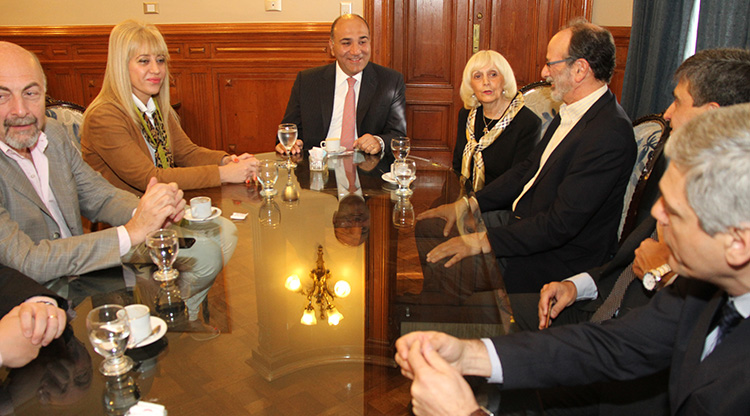Laura Doval, a market designer who teaches at Cal Tech and who hails from Argentina, has an article in FOCO ECONÓMICO about some of the market design issues facing kidney exchange in Argentina, including some issues addressed in her own research:
Trasplante cruzado: Argentina le abre las puertas al diseño de mercados
(Google translate: Cross transplant: Argentina opens the doors to market design)
"The new legal framework creates a system where patients with their non-compatible living donors can register and is responsible for finding compatible pairs. In our example, Ana and Barbara may not know each other (even live in different provinces) and even then the exchange could take place. In addition, the law removes the requirement to go through a judge and establishes the rules under which the exchange occurs.
" Although Argentina is the first country in Latin America to approve kidney transplants as a transplant modality, this modality has a long time in the world: South Korea performed the first cross transplant in 1990; in 1999, Switzerland led the first in Europe; in 2000, it began in the United States, where it is estimated that 13% of kidney transplants occur according to this modality. In the United States, it was doctors and economists who promoted the creation of cross-transplant centers. In fact, the New England cross transplant center was founded by Dr. Delmonico and the economist Al Roth. The latter received the Nobel Prize in Economics in 2012, in part because of the practical implications of his work for the design of these systems.
...
"Given the incipient state of the project in Argentina, it is a good time to reflect on what we can learn from existing projects, both to imitate them and to innovate about them:
"Who can be donors? In Argentina, the law continues insisting that the recipient-donor pairs (in our example, Ana-Bernardo and Bárbara-Alejandro) have a family link to be able to enroll in the "Cross-Renal Donation Program". Although most of the times the recipient-donor couples have a family bond, this restriction limits the possibilities of finding a successful exchange. Among other things, this restriction does not foresee the possibility of altruistic donors: people who enroll in the system to be living donors but do not accompany a recipient. In practice, the presence of altruistic donors has allowed to implement, in addition to crossed transplants, also chains. In a chain, the altruistic donor gives his kidney to the recipient of an incompatible couple, whose donor then gives his kidney to another non-compatible partner, etc. The difference between the chains and the cross transplant is that it is not necessary to close the cycle. There are two types of chains.
"In the Domino Chain , the donor of the last couple donates their kidney to someone on the waiting list.
"In Never Ending Altruistic Donation , the donor of the last couple is recorded in the system. If it is necessary for the chain to continue (because someone who requires a living donor is listed) you will be required to donate your kidney.
The reason for requiring the last recipient to have a potential donor is to avoid situations where someone is benefited without returning to the system.
"Compatible pairs : [3]The law provides that only donor-recipient couples that are incompatible can participate in the program. This does not take into account the benefit of including partners that are compatible. On the one hand, it would allow for more exchanges. As an example, think of Ana, a patient of blood type A, and Osvaldo, her donor, of blood type 0. Let's suppose that there is another patient, Oscar, of blood type 0, with his donor, Alejandra, of blood type A. In this case, Alejandra can not donate her kidney to Oscar (blood group A can not donate to blood group 0), while Ana and Osvaldo can not participate because they are compatible. Therefore, we could only carry out the transplant between Ana and Osvaldo. If Ana and Osvaldo could participate in the system, we could make two donations: Alejandra to Ana and Osvaldo to Oscar. Further, This could be beneficial for Ana: if Alejandra has better compatibility in age and weight with Ana than she has with Osvaldo, Ana's life expectancy is now better. To the extent that we design a system that does not harm patients in compatible pairs (for example, offering the patient to participate in exchanges with donors of better quality than theirs), the system can generate a greater number of donations and of better quality.
"Connection to the waiting list : In Argentina, the law allows couples enrolled in the cross-donation program to have their recipient also enrolled on the waiting list for a cadaveric transplant while waiting for another couple to be assigned to them. Suppose that a receiver enrolled in both systems receives a cadaveric transplant offer. As a living donor transplant is very superior in quality to a cadaverous one, it is possible that the recipient wants to decline this offer and keep their options open. On the one hand, we want to give you that freedom so you can get the best possible result and potentially use your donor for another operation; On the other hand, if there is no penalty for rejecting the offer, the waiting time of the patients in both lists increases.
"At the time of writing this article, the new law does not mention what happens in the event that a patient enrolled in both systems decline a cadaveric transplant offer. The rules we implement will determine the recipients' incentives to accept or decline these offers; these incentives then determine what kind of organ allocations we can implement. In fact, understanding this interaction between the rules that determine the allocation of offers on the waiting list after declining an offer and the assignments that we can implement both in the list and in the cross-donation program was the focus of the first chapter of my doctoral thesis. While there I study ways in which to design these rules, the main message is as follows:[4] This puts us before the following dilemma. One option is to rethink the transplant system, both cadaverous and crossed, jointly rather than as two independent systems. The second option is to think about how to determine the priority within the waiting list of cadaveric transplants of patients who are in both systems. Since these patients have more options than those only on the waiting list, treating them in the same way implicitly harms those with fewer options.
When there are multiple lists to assign similar objects, economists know very little about how to design the priorities of the participants annotated in multiple lists in order to guarantee the efficiency in the allocation. This is one of the topics that my current research occupies."
**************
See my earlier post
















